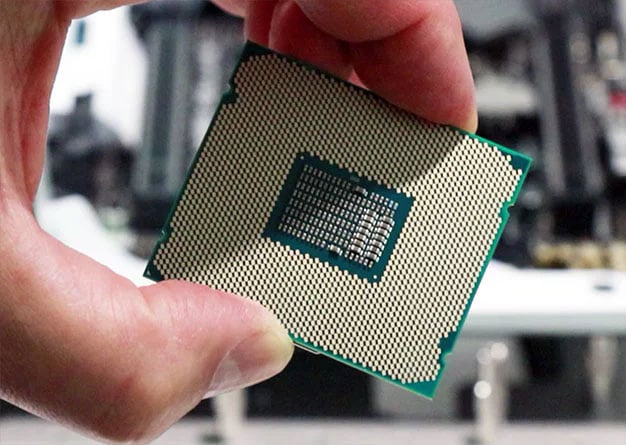Intel's Meltdown And Spectre Patches Causing Reboots On PCs With Newer Processors

Intel last week acknowledged that firmware updates intended to mitigate the security threats posed by Meltdown and Spectre were causing reboot issues in both client and data center computers powered by Broadwell and Haswell processors. Now it turns out that PCs running newer generation CPUs are experiencing "more frequent reboots" after applying firmware upgrades as well.
In a blog post, Navin Shenoy, executive vice president and general manager of the Data Center Group at Intel, said that firmware updates are now available for more than 90 percent of Intel CPUs introduced in the past five years. He also confirmed that those updates are also causing reboot issues in Ivy Bridge, Sandy Bridge, Skylake, and Kaby Lake systems, in addition to Broadwell and Haswell. There was no mention of Coffee Lake.
"We have reproduced these issues internally and are making progress toward identifying the root cause. In parallel, we will be providing beta microcode to vendors for validation by next week," Shenoy said.
This has been a frustrating ordeal for all involved. Even without the reboot issues, there is a performance impact from fully updating and patching systems to deal with Meltdown and Spectre. Intel provided some additional insight into that as well, saying that workloads that incorporate a large number of user/kernel privilege changes and spend a large amount of time of in priviliged mode are more adversely affected.
Here is a look at some updated benchmarks Intel provided:
The impact appears to be minimal in most cases, with Intel seeing a 0-2 percent performance on industry standard measures of integer and floating point throughput, Linkpack, Stream, server-side Java, and energy efficiency benchmarks. But there are also instances where performance is more adversely affected.
"Storage Performance Development Kit (SPDK) tests, which provide a set of tools and libraries for writing high performance, scalable, user-mode storage applications, were measured in multiple test configurations. Using SPDK iSCSI, we saw as much as a 25 percent impact while using only a single core. Using SPDK vHost, we saw no impact," Shenoy said.
It will take some time to paint a broad picture of performance, especially since additional firmware updates are needed to combat the reboot issues on current firmware. We also suspect that, over time, Intel and its partners will optimize further updates to lessen the performance impact, or so we hope.


